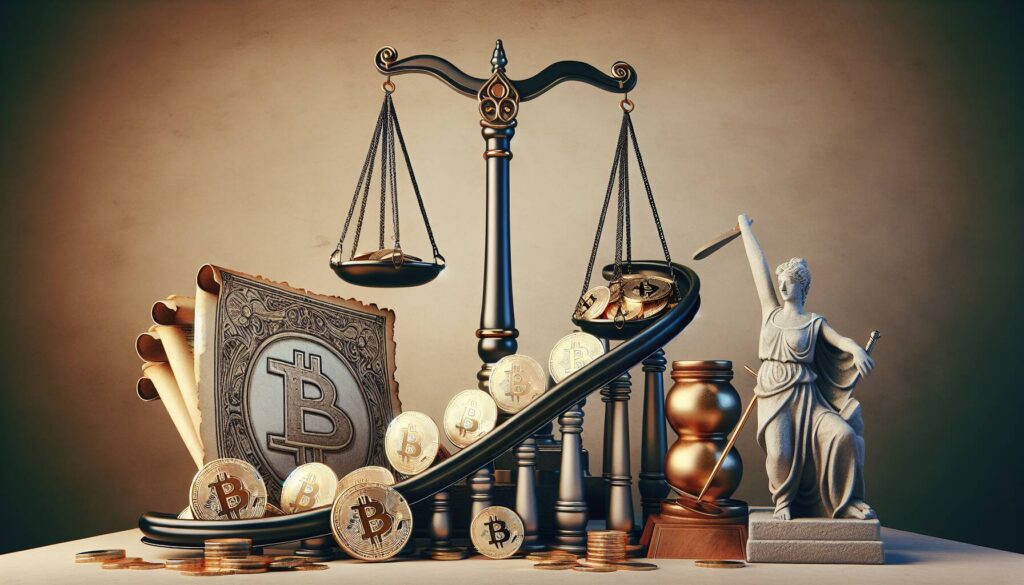In a significant development within the cryptocurrency sector, FTX, the once-powerful exchange that collapsed amidst scandal, has announced it will initiate another round of cash redistribution to its creditors starting September 30. The firm, which became infamous following the downfall of its founder Sam Bankman-Fried, has made substantial progress in addressing its financial obligations, having repaid nearly $6.2 billion since it began repayments earlier this year. This redistribution plan received the green light from a U.S. bankruptcy court, marking an important step in the ongoing recovery process for those affected by the exchange’s dramatic collapse.
FTX’s rise to prominence was quick, but its fall was equally swift, catalyzed by a revealing report from CoinDesk in 2022 that exposed severe financial irregularities. These issues ultimately led to Bankman-Fried’s conviction on multiple charges including fraud and conspiracy in 2023, resulting in a 25-year prison sentence, although he may see a reduction based on good behavior. The firm has also managed to obtain court approval to lessen its disputed claim reserve from $6.5 billion down to $4.3 billion, reflecting a shift in its bankruptcy strategy.
The upcoming cash redistribution will utilize prominent platforms such as BitGo, Kraken, and Payoneer to facilitate payments. As FTX continues to navigate the complexities of its financial recovery, the effects of its actions will be closely monitored by industry observers and creditors alike.

FTX Cash Redistribution and Legal Consequences
Key points regarding the situation of FTX and its impact:
- Next Round of Cash Redistribution: FTX will start redistributing cash to creditors on September 30, which may provide financial relief to affected investors.
- Creditor Repayments: The firm has repaid nearly $6.2 billion after receiving bankruptcy court approval, indicating progress in addressing its debts.
- Sam Bankman-Fried’s Conviction: The founder was sentenced to 25 years in prison for fraud and conspiracy, highlighting the legal repercussions of financial misconduct.
- Reduction of Disputed Claim Reserve: FTX has reduced its disputed claim reserve from $6.5 billion to $4.3 billion, suggesting improved clarity on outstanding claims.
- Distribution Channels: Cash will be distributed through BitGo, Kraken, and Payoneer, providing multiple avenues for creditors to receive payments.
- Potential Sentence Reduction: Bankman-Fried’s sentence could be reduced by 4 years for good conduct, raising questions about accountability in financial crimes.
The unfolding events may affect the readers involved in the cryptocurrency market, especially in understanding the importance of due diligence and the risks associated with investing in digital assets.
FTX’s Cash Redistribution: A Shift in the Crypto Landscape
FTX’s latest announcement regarding its cash redistribution plan represents a significant turning point for creditors and the wider crypto community. As a prominent exchange that once shaped the digital asset landscape, FTX’s attempt to repay nearly $6.2 billion of its substantial debts is a remarkable move out of bankruptcy. This initiative mirrors actions taken by other firms in similar predicaments, such as Mt. Gox and Celsius, who faced their downturns and sought recovery routes. However, FTX’s situation is distinct in its high-profile nature and the staggering $11 billion fraud orchestrated by its former leadership.
Competitive Advantages: The approval to redistribute funds through established platforms like BitGo, Kraken, and Payoneer allows FTX to leverage trusted technology and processes, promising a higher assurance of security and efficiency for creditors craving compensation. The decision to trim its disputed claims reserve also eases uncertainty, presenting a more favorable outlook for repayment terms and timelines.
Competitive Disadvantages: Despite these advantages, the shadow of its former CEO, Sam Bankman-Fried, looms large. His high-profile conviction for fraud has diminished trust in the brand and led to skepticism among current and potential investors. As FTX tries to rediscover its footing, the stigma attached to its past actions could hinder its ability to regain market share against competitors who maintain a clean reputation.
This situation may primarily benefit creditors who are eager for restitution after the prolonged bankruptcy process, potentially rejuvenating their confidence in the crypto ecosystem. However, the issues FTX faces—such as regulatory scrutiny and a tainted image—could create hurdles for the exchange’s long-term recovery and growth. In an industry that thrives on trust, regaining public confidence will be pivotal for FTX as it navigates this complex landscape following a major operational overhaul.

















